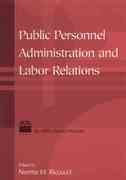Question
1. What objection to utilitarian ethics does Mill mean to answer in this chapter? What does Mill think motivates this objection? 2. What does Mill
1. What objection to utilitarian ethics does Mill mean to answer in this chapter? What does Mill think motivates this objection?
2. What does Mill conclude that we ordinarily mean by justice, and what is its relationship to what he calls morality?
3. According to Mill, what must be the origin of the sentiment of justice, and when is it, properly speaking, a moral sentiment?
4. What is Mill's criticism of Immanuel Kant's fundamental principle of morals?
5. According to Mill, what do we mean when we say that someone has a right? Why do we attribute rights to people, and what morally justifies the protection of rights?
6. Why, according to Mill, can't any principle of justice serve as final arbiter of moral disputes? What argument does he offer in support of this claim?
7. If general utility is all that ultimately matters to Mill, then why does he believe that the prescriptions of justice outweigh the prescriptions of policy (i.e., prudence or efficiency in the management of affairs)?
8. What does Mill say is "the highest abstract standard of social and distributive justice," and what more basic principle is it founded on?
9. How does Mill respond to the objection that the principle of utility presupposes a more basic principle of justice (viz., the equal rights of persons)?
10. What does Mill say is the proper relationship between the equal rights of persons and general (social) utility?
Step by Step Solution
There are 3 Steps involved in it
Step: 1

Get Instant Access to Expert-Tailored Solutions
See step-by-step solutions with expert insights and AI powered tools for academic success
Step: 2

Step: 3

Ace Your Homework with AI
Get the answers you need in no time with our AI-driven, step-by-step assistance
Get Started


